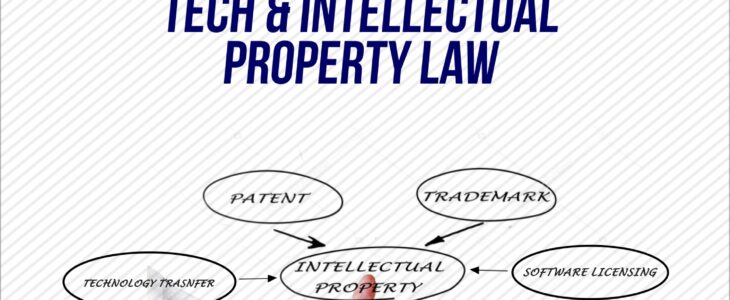
The hallmark of trademark is a grant of certain right(s) to proprietors of a given product or band in the market to the exclusion of other competitors from making use of a sign, symbol or slogan with which the product is identified. Distinctiveness is the foundational basis for trade mark registration as the mark sought to be registered must be distinct from existing marks in order to enjoy these exclusive rights conferred by the law. The distinctive nature of the mark separates it from other marks and makes it to be easily identified and recognized in the market by the consumers.
In Ferodo Ltd & Anor v. Ibeto Industrial Ltd (2004) LPELR-1275(SC), the supreme court held that the essential of a device claimed to be trademark is that it identifies the goods of a particular merchant and distinguishes the goods from the goods of others. The court further held that trademark is a distinctive mark of authenticity through which the product of a particular manufacturer may be distinguished from those of others by word, name, symbol or device.
The article will consider in a question-and-answer format the concept of distinctiveness in trade mark registration.
What is the effect of registration of a trade mark?
Registered trade mark confers on the proprietor an exclusive right to use of the mark. In Dyktrade Ltd v. Omnia Ltd (2000) 7 SC (Pt.1) 56, the Supreme Court held that ‘trade mark’ when registered will entitle the proprietor to use or institute an action for an infringement of the trade mark. Registration of a mark entitles the proprietor to the exclusive use of the trademark and also the right to sue for passing off the goods of the proprietor.
What is the essential function of trade mark?
The indispensable function of trade mark is to guarantee to consumers the origin of goods and services in relation to which it is used by enabling them to distinguish those goods or services from other products in the market which have a different origin. A mark performs this function through its distinctive character that may be inherent or acquired, but can only be acquired through the use of the mark as a trade mark, that is to say for the purpose of identification by the consumers of the relevant goods or services as the case may be as originating from a particular undertaking. In such circumstance, consumers would not only perceive the goods or services designated by the mark as originating from a particular undertaking, but would also rely on it for that purpose in making or confirming their transactional decisions.
What is Distinctiveness?
Distinctiveness in trade mark is a concept that provides that for a mark to be registrable under the trademark law, such mark must be capable of being identified with a particular undertaking, and poses a distinctive character which distinguishes such product or services as the case may be from other multitudes of marks available in the market thereby making it easily identifiable by the consumers. It is a distinctive mark of authenticity through which the product of a particular manufacturer may be distinguished from those of others by word, name, symbol or device. The foregoing implies that a trademark can only be afforded protection under the law if it is distinctive from other marks.
What is the significance of distinctiveness in trade mark registration?
The significance of distinctiveness lies in the considerable value of mark sought to be registered as a trade mark. It confers upon the proprietor an exclusive right to use the mark in relation to the product concerned to the extent that if a third party were to use that same mark for same product, the proprietor would not need to show a likelihood of confusion about the origin of the product for, subject to defences, a likelihood of confusion would be presumed. But if the consumers do not perceive the mark as denoting the origin of the product, no one will actually be confused and the protection afforded by the registration would not be justified.
Can a mark be registerable in Nigeria if it lacks distinctive character?
No, a mark cannot be registrable in Nigeria if it lacks distinctive character. For it to acquire distinctiveness, it must possess a mark of originality. A mark sought to be registered must be distinctive or capable of being distinguished. Section 9(1)(d) of the Trade Mark Act 1965 cap T13 Laws of the Federation of Nigeria 2004, provides that:
A word or words having no direct reference to the character or quality of the goods, and not being according to its ordinary signification a geographical name or a surname; at any other distinctive mark:
Provided that a name, signature or word or words other than such as fall within paragraphs (a) and (d) of this section, shall not be registrable under paragraph (e) of this section, except upon evidence of its distinctiveness.
When is a mark assumed to have acquired distinctiveness?
A mark is said to have acquired distinctiveness if in any case it has shown that consumers have come to rely upon it as an indication of origin. If a mark has been used in such a way that a significant proportion of the consumers have come to rely on it as a badge of origin, then it will indeed be distinctive. However, in circumstances where a mark has been used in conjunction with a registered trade mark, it may be difficult to show that consumers have relied upon it in the course of their transactional behaviour, particularly where the mark is visible at the point of sale.
In Ferodo Ltd & Anor v. Ibeto Industrial Ltd (supra), the Supreme Court of Nigeria (per NIKI TOBI, JSC) (Pp 63-64) stated that
‘In the law of trade marks, the element of distinctiveness come before that of passing-off in way the number 1 comes before 2. In other words, the plaintiff must first prove to the satisfaction of the court that the mark has a distinctive character or nature, before he can prove the movement of the trade mark of the defendant in business circles by way of passing-off. The element of distinctiveness is consonant to or predicated on some age by way of long or extensive user. What constitutes long or extensive user is a question of fact to be determined in the light of the circumstances of the case. It is certainly not age of Methusalah. Once the trade mark, by frequent use, has acquired a notoriety in the trade to the common knowledge and common and easy identification of persons in the trade, it will be said to have acquired the character of distinctiveness’.
If consumers associate a mark with a particular product, does that make the mark distinctive or registrable under trademark law?
No. The mere fact that consumers associate a mark with a particular product does not make the mark registrable. In the English case of Societe des Produits Nestle SA v. Cadbury UK Ltd. (2017) EWCA Civ 358, where Nestle had applied to register as a United Kingdom trade mark a three-dimensional sign in respect of chocolate and various other goods. The trade mark corresponded to the shape of a four-finger chocolate product sold by Nestle under the name ‘Kit Kat’ in the UK, save that it lacked kit kat logo which was embossed onto each of the fingers of the actual product. The application was opposed by Cadbury on various grounds including that the product lacks distinctive character and so registration was precluded under 3(1)(b) of the Trade Marks Act 1994. The hearing officer held that it was devoid of inherent distinctive character in relation to any of the goods in respect of which the registration had been sought.
On appeal and counter appeal, the court held that the hearing officer had not erred as a matter of law in addressing the issue of acquired distinctiveness and that the conclusion he had reached had not only be open to him on the evidence before him but had also been correct, and therefore dismissed the appeal. Upon further appeal Nestle contends that a substantial proportion of the relevant consumers when presented with the three-dimensional shape as a kit kat, they meant a specific product from a single source and that that meant that the trade mark was distinctive within the meaning of Art 3(3) of European Parliament and Council Directive 2008/95/EC (laws of the member states relating to trade marks).
Dismissing the appeal by Nestle, the appellate court held that with respect to acquisition of distinctive character by an inherently non-distinctive three-dimensional shape mark such as the trade mark, it was not sufficient for the appellant to show that a significant proportion of the relevant class of persons recognized and associated the mark with the appellant’s goods.
Can a registered generic name enjoy exclusivity?
In D & S Trading Co. LTD v. Remia C.V (2019) LPELR 47628 (CA), the court stated that the registration of a generic name by a person or business will not deny another person or business from registering the same name either with a prefix or suffix as such trade mark cannot claim distinctiveness or exclusivity.
The court went further to say that, to avoid similar registration, the trade mark must be distinctive and not generic, to be distinctive means something unique and peculiar to the proprietor of the trade mark.
Who has the burden of proof in an action for trade mark infringement?
As in general civil cases, the burden of proof lies on the party who will lose if no convincing evidence is led on either side of the case (usually the plaintiff). The plaintiff must prove that the defendant used an identical or similar sign in such a way that took unfair advantage of the plaintiff’s acquired and established market reputation to the detriment of the distinctive character of its trade mark. See Morison Industries Plc v. CPL Industries Ltd. (2021) LCN/14929 (CA).



